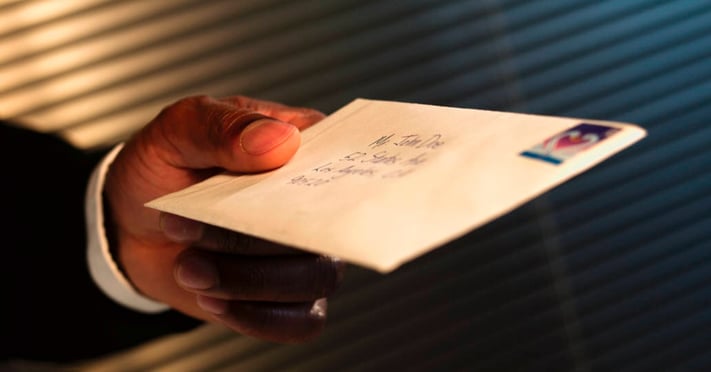by Brett Mackie | Service Manager - Villa del Parque Center

For the past 15 years or so, as everybody knows, email has taken over from letters as the number one form of business communication between individuals and companies. We are all aware of the benefits of email-it’s very easy to use and more importantly, extremely fast. In countries like the USA, Britain and Australia where the “time is money” culture prevails, getting results immediately is probably the most highly-valued attribute.
Desde los últimos 15 años aproximadamente, todos saben que los emails han superado a las cartas como la primera forma de comunicación entre individuos y empresas. Todos sabemos sus beneficios - es mas fácil de usar, y extremadamente rápido. En países como el EEUU, Gran Bretaña y Australia donde la cultura de “el tiempo es dinero” prevalece, alcanzar inmediatamente los resultados es probablemente el atributo mas premiado.
However in sectors of business like Legal and Finance, people still prefer-or even insist on-the printed letter. This is not done out of a desire to “stay traditional” but rather because letters are fairly private while email, for all its benefits, is not 100% secure. Hackers and IT specialists can spy on anybody’s private email, and it’s much easier for them to do than it is to hold a letter over a boiling kettle for 5-10 minutes.
Sin embargo, en los sectores como Legal y Finanzas, la gente prefiere-y a veces insiste-la carta impresa. No es por ser “tradicional” sino porque las cartas resguardan la privacidad, mientras el email no es 100% seguro. Los especialistas en internet pueden hackear cualquier computadora en cuestión de segundos, mientras intentar abrir una carta sobre agua hirviendo puede llevarles más tiempo.
Another point is that it’s hard to mistake the receiver of a letter when their name and address is clearly written on the envelope, whereas we’ve all heard the stories of people who want to send a private or joke email, and with one wrong letter in the address, end up sending it to a major newspaper or the president of the company.
Otro punto es que es difícil equivocar el recipiente de una carta cuando su nombre está claramente impreso en el sobre, mientras todos hemos escuchado historias de gente que quiere mandar un email privado o un chiste y con sólo una letra equivocada en la dirección, termina mandándolo a un diario grande o el presidente de la empresa.
Letters are also the preferred way of recording things like customer complaints, employee hirings and firings, and other formal issues. Email may be faster and easier to use, but if you think that because it’s not written on paper it can’t be seen so easily, remember Big Brother is always watching.
Las cartas también son preferidas para dejar por escrito cosas como quejas de clientes, contratos y despidos de empleados, y otros temas formales. El email puede ser más rápido y fácil, pero si piensas que si no está anotado en papel no puede ser visto tan fácilmente, recuerda que Gran Hermano siempre está viendo.
Happy Emailing (or writing)!




